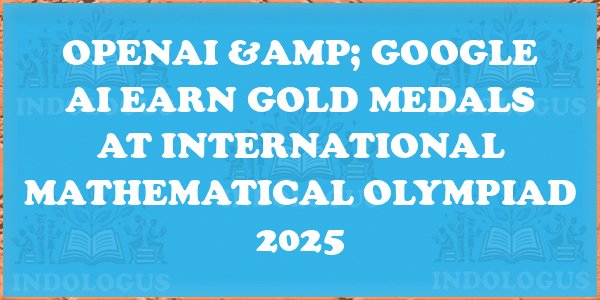Overview:
Recent AI advancements by OpenAI and Google DeepMind saw their models achieve gold medal scores at the International Mathematical Olympiad (IMO), competing alongside high school students. This historic feat demonstrates AI’s prowess in tackling complex math problems.
The International Mathematical Olympiad Explained
- Annual global math competition since 1959
- Two 4.5-hour sessions with three challenging problems each
- Problems from algebra, combinatorics, geometry, and number theory
- Gold medal threshold set at 35 points in 2025
AI’s Performance and Techniques
- AI models solved 5 out of 6 problems, scoring 35 points each
- Utilize advanced reasoning techniques for problem-solving
- Google’s model, Gemini Deep Think, employs parallel thinking
- OpenAI’s model demonstrates strong reasoning but awaits official certification
Human Competitors and AI Comparison
- Indian participants secured multiple medals at IMO 2025
- AI excels in pattern recognition and problem type memorization
- Human creativity and emotional experience give an edge over AI
Significance of AI Achievements
- AI’s progress in mathematical reasoning showcased
- AI systems now generate proofs from natural language within time constraints
- Implications for cryptography and space exploration in solving complex mathematical problems
Limitations and Future Prospects
- AI models exhibit inconsistent reasoning and struggle with simple questions
- Caution against overestimating AI capabilities; human intuition still vital in mathematics
- AI seen as a tool for proof-checking and brainstorming in mathematical research
Key Takeaways for Competitive Exams
- AI models by OpenAI and Google DeepMind achieved gold medal scores at IMO
- IMO consists of two sessions with challenging math problems in various categories
- AI’s progress in mathematical reasoning showcased, impacting fields like cryptography and space exploration
- Human creativity and intuition remain essential in mathematics despite AI advancements



